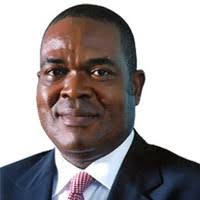By Marcel Okeke
In what looks like an irony, Nigeria is being ranked among countries with the largest number of hungry and poor people in the world at a time the political leadership of the country is beating their chest for achieving what they call “macroeconomic stability.” The latest data from the Global Hunger Index (GHI) ranked Nigeria 115th out of 125 countries, with hunger score indicators showing a severe food security crisis, driven by high poverty rate, high inflation and insecurity.
The GHI, an international documentary index, is anchored on comprehensive measurement and tracking of hunger ratings at global, regional, and national levels, based on four component indicators, including undernourishment, child stunting, child wasting, and child mortality. For Nigeria, its current ranking might worsen, according to the country representative of Propcom+ (a global NGO), Dr. Adiya Ode, considering that “31.8 million Nigerians are already suffering from acute food insecurity.”
Ode, who spoke in Kano during the ‘Nutritious Food Fair’, lamented the increasing level of malnutrition and child stunting in Nigeria, which is “compounding the hunger crisis.” As Ode was lamenting in Kano, a horde of Nigerians poured onto the streets of Abuja in a protest against worsening poverty, hunger, and rising cost of living.
The protest, organized by the Movement for the Transformation of Nigeria (MOTiON), coincided with the International Day for Eradication of Poverty, observed globally every October 17. A few days ago, the World Bank had expressed concern that despite Nigeria’s recent economic stabilization efforts, about 139 million citizens “are now living in poverty,” warning that the country risks losing reform gains if they fail to translate into tangible improvements in people’s welfare.
At the launch of the October 2025 Nigeria Development Update (NDU) in Abuja, the World Bank Country Director, Mathew Verghis, acknowledged that the Federal Government’s recent economic reforms, including monetary tightening, fuel subsidy removal, and exchange rates unification, have produced some stabilization gains.
Yet, in another development, one of Nigeria’s leading policy think tanks—Nextier—has also raised concern over the plight of more than eight million Nigerians displaced by conflicts and climate-induced shocks, warning that critical services in affected areas were being disrupted due to funding constraints.
The Group noted that ongoing conflicts and insecurity in many parts of Nigeria have displaced over 3.5 million people—putting pressure on local infrastructure and essential services in host communities. The NGO warned that climate change continues to worsen the plight of internally displaced persons (IDPs) through food insecurity, disease outbreaks, and recurring environmental disasters that perpetuate cycles of displacement.
Recall that in Nigeria’s 2022 Multidimensional Poverty Index (MPI), a staggering 133 million people, which is about 63 per cent of the population, were classified as multidimensionally poor. This means they face deprivations in areas like health, education, living standards, and work. Country Director of Action Aid Nigeria, Andrew Mamedu, who spoke during the 2025 World Food Day (October 16, 2025), said the Nigerian hunger situation was a deep humanitarian crisis driven by insecurity, climate change, and widespread poverty in the country.
Citing the Food and Agriculture Organization (FAO), he noted that about 30.6 million Nigerians across 26 states and the FCT were projected to face acute food and nutrition insecurity during the June and August 2025 lean season. Although this number reflects a slight improvement from the 33.1 million recorded in 2024, Mamedu cautioned that “Nigeria still ranks as the country with the highest number of food-insecure people in the world.”
These statistics frontally belie claims of meaningful gains from the reform efforts of the Government of the day. In point of fact, the lived reality of mounting hardship, rising cost of living and vaporizing purchasing power of the average Nigerian jointly put a huge question mark on the outcomes of Government’s recent economic policies.
Practically every stakeholder-organization, including the World Bank, the International Monetary Fund (IMF), and NGOs have admonished the powers that be in Nigeria to tilt more towards improving the welfare and wellbeing of the citizenry than celebrating mere statistical outcomes of the reforms.
Apparently, in the bid to arrive at the figures to celebrate, the Federal Government not only rebased the Consumer Price Index (CPI) and the Gross Domestic Product (GDP) but also adopted a new methodology in the computation of the unemployment rate. Thus, from the frightening height of 34.87 per cent at-end December 2024, the CPI has been made to be dropping consistently since January 2025; and standing at 18.12 per cent at end-September 2025.
Similarly, the GDP has been reported to now be growing at faster-than-projected rate of 4.23 per cent during the second quarter 2025—the most impressive performance in four years. And yet, the outcome of the GDP rebasing earlier in the year showed that Nigeria had dropped to the fourth position among African economies—behind South Africa, Algeria, and Egypt. As regards unemployment rate, the level was above 33 per cent as of 2021 (especially youth unemployment), but due to the change in the computation methodology, the rate has been kept at low single digits. Indeed, Nigeria’s 2025 unemployment rate is projected to be only around 4.84 per cent—a gross deviation from a potential 40 per cent rate that was thrown up during a recent debate at the National Assembly.
In a similar vein, the Central Bank of Nigeria (CBN), adopting a tight monetary stance, has used hiked Monetary Policy Rate (MPR) to attract ‘hot money’ in form of foreign portfolio investment (FPI) to the detriment of local deficit spending units (DSUs). Angling to show capacity to fund the FX market, and achieve stability, the apex bank has ended up pricing money beyond the reach of most economic agents, especially SMEs. MPR has been standing at 27.5 per cent for almost a year, before a recent drop by only five hundred basis points, to 27 per cent. All these account for why the rate of hunger, poverty and hardship keeps rising while the Government goes on presenting a façade. Food insecurity, and insecurity of life and property in Nigeria has remained an existential threat; and any view to the contrary is a mere illusion.
Truly, that Nigeria ranked better than ten countries on the Global Hunger Index (GHI) as reported above looks even undeserving. The country’s economic reality of today fittingly keeps her at the very base. Unfortunately!

The author, Okeke, a practicing Economist, Business Strategist, Sustainability expert and ex-Chief Economist of Zenith Bank Plc, lives in Lekki, Lagos. He can be reached via: obioraokeke2000@yahoo.com (08033075697) SMS only




